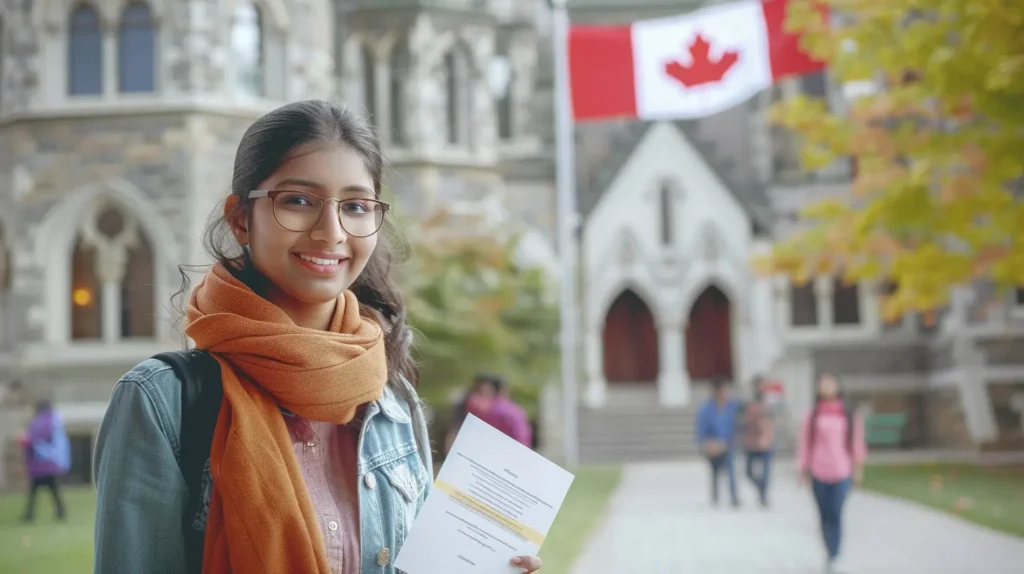By Imran Malik | November 4, 2025 | 4 Min Read
Canada’s rejection of nearly 75% of Indian student visa applications marks a new low in relations between Ottawa and New Delhi — a relationship already frayed since the 2023 killing of a Sikh activist in British Columbia. What began as a diplomatic storm between Prime Minister Narendra Modi and then–Prime Minister Justin Trudeau has now spilled into classrooms and campuses, reshaping one of the most significant education corridors in the world.
Diplomatic chill deepens
The slide in academic ties mirrors a broader diplomatic rift. The fallout began when Trudeau accused Indian agents of involvement in the killing of Hardeep Singh Nijjar, a pro-Khalistan activist and Canadian citizen. India dismissed the allegations as “absurd,” triggering a tit-for-tat expulsion of diplomats and a freeze in high-level talks.
The rift has since widened beyond politics — into immigration, education, and cultural exchanges — as both governments recalibrate their policies amid public pressure at home.
Indian student flood turns into a trickle
According to official data, Indian student permit applications plunged from 20,900 in August 2023 to just 4,515 in August 2025 — an almost 80% decline. Once Canada’s largest source of international students, India now faces the highest study-permit refusal rate among nations with more than 1,000 accepted applicants.
Education experts say the drop is not just about paperwork. “It’s a symptom of deeper distrust,” said Dr. Ian VanderBurgh, associate vice president for strategic enrolment at the University of Waterloo. “When diplomacy breaks down, students feel it first.”
Fraud and financial scrutiny tighten
Ottawa attributes the surge in rejections to fraud and financial irregularities. In 2023, immigration authorities uncovered 1,550 fake study permits linked to forged acceptance letters — mostly from India. A year later, a new verification system flagged over 14,000 suspicious applications globally.
Canada’s Immigration Department has since toughened vetting procedures, requiring applicants to prove the source of funds, not just show bank statements.
Foreign Affairs Minister Anita Anand said the changes are about “integrity, not isolation.”
“We welcome Indian students,” Anand told reporters in New Delhi last month, “but we will not compromise the integrity of our education system.”
Universities feel the pinch
Canadian universities, long reliant on Indian enrolments, are feeling the strain. The University of Waterloo reported a two-thirds decline in Indian students in just four years, while the University of Regina and the University of Saskatchewan show similar downward trends.
“This drop is transforming our campuses,” said VanderBurgh. “We’ve gone from worrying about overcrowded lecture halls to wondering how to fill them.”
Canada’s changing social fabric
Analysts note that the issue extends beyond education. Canada’s rapid influx of Indian students — nearly 40% of its foreign student body by 2022 — had begun to reshape the country’s demographics, housing market, and labour trends. As public opinion shifted, Ottawa came under pressure to curb what many saw as an “unsustainable influx.”
“The Indian student wave was changing the Canadian social fabric — from suburban housing demand to local job markets,” said Toronto-based migration analyst Sarah Fielding. “Now, with stricter rules, Ottawa is trying to restore balance.”
India’s response: ‘Best students in the world’
The Indian Embassy in Ottawa responded diplomatically, noting that visa decisions were Canada’s prerogative but reminding that Indian students had long strengthened Canadian academia.
“Some of the best quality students in the world are from India,” it said in a statement. “Canadian institutions have greatly benefited from their excellence.”
From opportunity to uncertainty
For many Indian youth, Canada once symbolized global opportunity — a place to study, work, and settle. Now, the narrative has shifted. Some rejected applicants express quiet relief.
“With jobs and PR [permanent residency] getting tougher, many say they’re lucky they didn’t go,” said Jaspreet Singh of the International Sikh Students Association. “The dream has changed.”
The bigger picture
From a diplomatic feud over a Sikh activist’s killing to a tightening of visa rules, India–Canada relations are undergoing a structural realignment. What once connected the two countries — education and people-to-people ties — has now become a fault line of friction.
And as New Delhi and Ottawa recalibrate their stances, it’s the students caught in between who are paying the price.
Key Highlights:
- Rejections: Nearly 75% of Indian student visa applications were denied.
- Decline: Applications fell from 20,900 (Aug 2023) to 4,515 (Aug 2025).
- Backdrop: Diplomatic chill since Trudeau’s 2023 allegations against India.
- Universities hit: Indian enrolments down two-thirds in top institutions.
- Public mood: Rising skepticism over large-scale Indian migration.



2 Comments
Yesterday, while I was at work, my cousin stole my apple ipad and tested to see if it can survive a 25 foot drop, just so she can be a youtube sensation. My iPad is now broken and she has 83 views. I know this is totally off topic but I had to share it with someone!
Very well written story. It will be helpful to anybody who employess it, as well as myself. Keep doing what you are doing – for sure i will check out more posts.